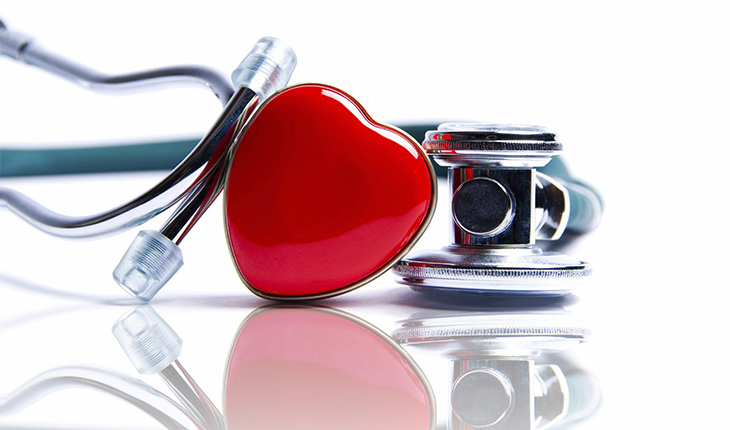Researchers have discovered that treating adult patients with HGH after heart attack could help slow down the progression of cardiovascular disease. Chronic heart failure (CHF) patients have an increased risk of growth hormone deficiency (GHD). In fact, approximately 40 percent of CHF patients may also suffer from GHD.
Growth hormone, and its mediator insulin growth factor 1 help to regulate and control numerous metabolic factors for cardiovascular risks. IGF-1 has been shown as a crucial initiator of nitric oxide (NO) synthesis. NO helps to increase coronary blood flow and is produced in the endothelium (interior surface of the arteries).
The relationship between HGH and heart attack risk is seen in the effects of growth hormone on the body. Low HGH levels can influence cardiovascular risk factors in the following ways:
- Slowing and impairing metabolism from processing food resulting in weight gain – specifically abdominal fat which puts a strain on the internal organs and heart
- Increasing LDL cholesterol levels which can lead to the build-up of fatty deposits in the arteries resulting in atherosclerosis
- Higher levels of triglycerides (fats) in the bloodstream
- Increasing the levels of inflammatory C-reactive protein markers
- Decreasing energy levels and cardiac output and exercise capacity
- Reducing left ventricular mass and posterior wall thickness
- Increasing concentrations of fibrinogen too high which can lead to dangerous blood clot formation (as well as an increased risk of Alzheimer’s disease and dementia)
Administering HGH therapy to GHD adults can reduce and reverse the above risk factors for better cardiovascular health. To learn more about receiving treatment with HGH for better heart health, please visit our website https://www.nexelmedical.com also, you’ll find a lot of useful information about therapy and how it works.
Benefits of HGH for Cardiovascular Health After a Heart Attack

One key benefit of prescribing HGH and heart attack recovery and cardiovascular improvement is how HGH helps lower LDL cholesterol and triglyceride levels to reduce plaque buildup in the arteries. This is critical as NO production occurs in the endothelium of the arteries.
HGH therapy also helps lower the blood plasma homocysteine levels by as much as 8 percent. Elevated levels of homocysteine contribute to endothelial dysfunction as well as the onset of atherothrombotic vascular disease. Homocysteine is a known atherosclerosis risk factor and can contribute to the formation of blood clots and oxidative stress.
Administering HGH after heart attack recovery helps induce left ventricular reverse modeling which results in the following significant reductions:
- Left ventricular end diastolic volume index
- Left ventricular end systolic volume index
HGH therapy also improved left ventricular ejection fraction by as much as 10 percent in one study out of the University of Naples in Italy. Researchers also reported that hospitalizations for worsening heart failure were lower for those individuals who received HGH therapy than the control group. Increased peak oxygen consumption was another benefit of treatment with human growth hormones.
Other HGH heart attack benefits include:
- Improved exercise capacity to help strengthen the heart muscle
- Increased myocyte hypertrophy for improvements in scar tissue
- Reduced vascular resistance
- Improved pulmonary capacity for better blood oxygenation
Can HGH Help Prevent Heart Attacks?

When your hormone specialist runs diagnostic blood tests, numerous health and hormone markers will be checked. It is essential for the doctor to have a clear and comprehensive knowledge of your past and current health history. Only with the appropriate hormone therapy for your body’s needs can homeostasis (balance) be attained.
Why can HGH cause heart attack in adults with GHD and is it possible to prevent cardiovascular disease in the first place by maintaining hormonal balance?
Nothing in life is guaranteed. We wish we could say that avoiding hormonal decline could prevent illness. However, what we can tell you is that you do lower the risk of cardiovascular disease, stroke, heart attack, atherosclerosis, and many other health concerns by maintaining optimal HGH balance.
Normal HGH and IGF-1 levels can reduce the risk of the following:
- Ischemic cardiac disease associated with congestive heart failure
- Myocardial infarction
- Cerebrovascular disease
- Decreased NO synthesis
Nitric oxide release is essential for the body as NO takes part in many cellular activities, including:
- Reducing inflammation
- Regulating blood pressure by dilating the arteries to increase oxygen and blood flow
- Transmission of information between nerve cells located in the brain
- Assisting the immune system in fighting off germs and bacteria















